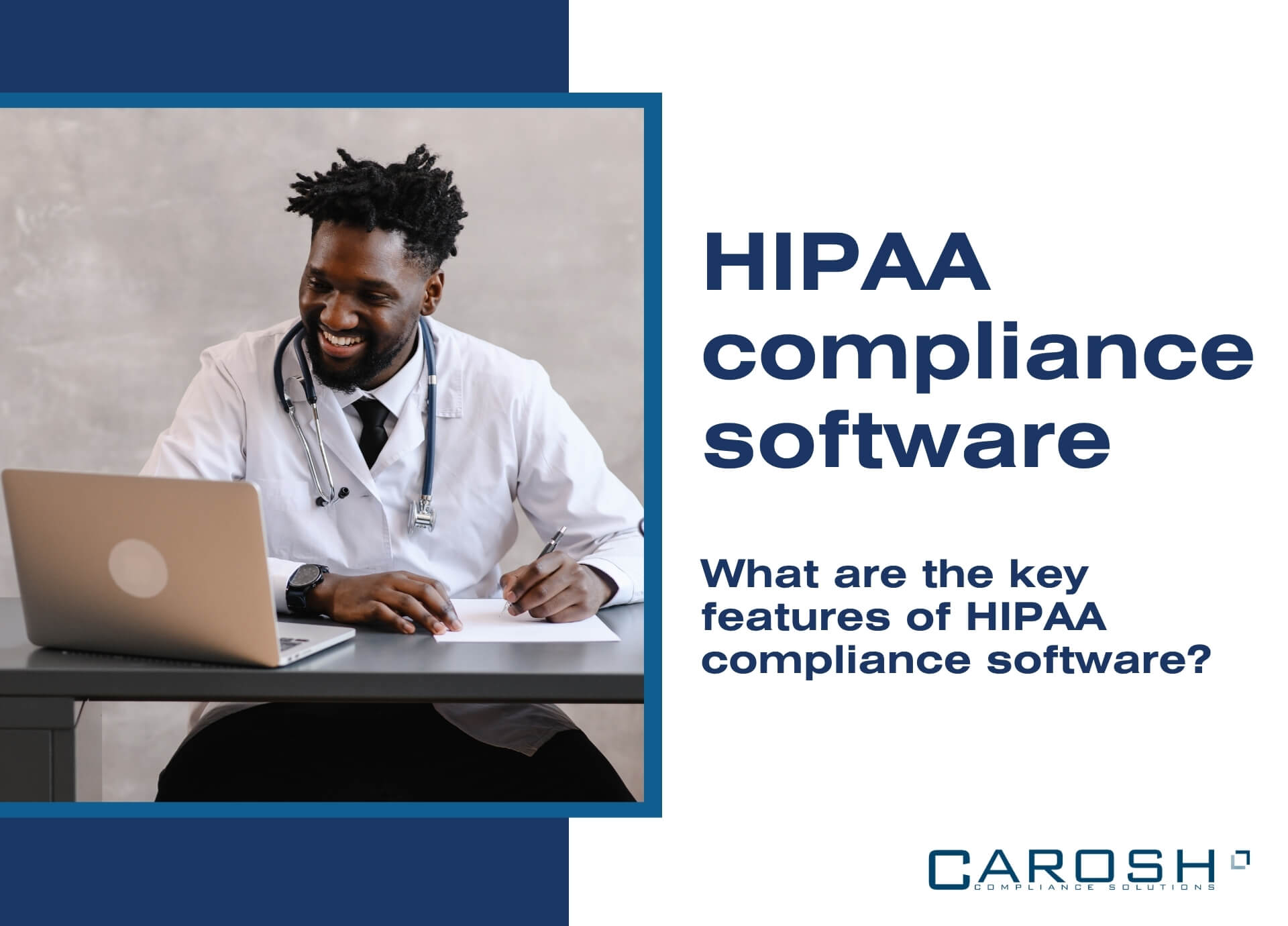
In the complex and ever-evolving landscape of healthcare data protection, HIPAA compliance software emerges as an indispensable tool for healthcare organizations. Navigating HIPAA regulations, which encompass the safeguarding of Protected Health Information (PHI), demands meticulous attention to detail and adherence to stringent standards. This comprehensive overview delves into the multifaceted role of HIPAA compliance software, examining its key features, benefits, and the critical considerations involved in selecting the right software. From streamlining compliance processes to enhancing PHI security, the software’s impact is significant, making its careful selection and implementation a priority for healthcare entities aiming to uphold the highest standards of patient data privacy and regulatory compliance.
Key Features of HIPAA Compliance Software
HIPAA compliance software is designed with a suite of key features to ensure robust security and efficient compliance management. Robust security measures are foundational, with encryption safeguarding PHI both at rest and in transit, and access controls ensuring that only authorized personnel can access sensitive information. Audit trails further enhance security by tracking and logging user activities, crucial for monitoring and potential investigations.
The software’s customization options cater to the diverse needs of healthcare organizations. Flexible configuration allows for tailoring to specific operational workflows, while scalability ensures that the software adapts to the changing needs and growth of an organization.
Integration capabilities with existing systems, like electronic health records (EHRs), are a critical feature. This ensures seamless operation and data consistency across various healthcare IT infrastructures. Features enabling secure data import and export facilitate efficient data management and maintain data integrity.

Automated alerts and reminders play a vital role in maintaining compliance. They ensure that organizations stay on top of important deadlines, such as breach reporting deadlines, and keep staff training up-to-date. These automated tools are essential for keeping track of the numerous and often complex regulatory requirements.
The software’s document control features support the management of compliance-related documents, offering secure storage, version control, and tracking of changes. These features also help in adhering to HIPAA’s document retention and destruction requirements, automating the scheduling of document retention and ensuring timely destruction of outdated PHI.
In essence, HIPAA compliance software is a comprehensive tool, equipped with advanced features to manage the intricacies of HIPAA regulations, from ensuring high-level data security to facilitating day-to-day compliance management. These features collectively contribute to simplifying the compliance process, securing patient data, and enabling healthcare organizations to uphold the highest standards of privacy and security.
Benefits
The utilization of HIPAA compliance software offers a multitude of benefits that significantly contribute to the effective management of compliance requirements under the Health Insurance Portability and Accountability Act (HIPAA). One of the primary advantages is the streamlining of compliance management. By simplifying and organizing the numerous and often complex requirements of HIPAA, the software makes the compliance process more efficient and less time-consuming. This efficiency is particularly beneficial for healthcare providers and associated entities who deal with an array of other demanding operational tasks.
Another key benefit is the reduction in the risk of non-compliance. HIPAA compliance software achieves this through the automation of crucial compliance tasks, such as tracking compliance deadlines, managing training schedules, and ensuring regular risk assessments are conducted. By automating these tasks, the software minimizes the chances of human error and oversight, which can lead to non-compliance issues.
Enhanced security features provided by HIPAA compliance software are critical in safeguarding Protected Health Information (PHI). These features include robust encryption, secure data storage, and advanced access controls, which collectively protect against unauthorized access and potential PHI breaches. In an era where data breaches are increasingly common, having strong security measures in place is indispensable for maintaining the confidentiality and integrity of sensitive patient information.
Ongoing training and awareness are essential components of HIPAA compliance, and compliance software typically includes modules or features that facilitate continuous education for staff. This ongoing training ensures that all personnel are up-to-date on the latest HIPAA regulations and best practices, which is vital for maintaining an organization-wide culture of compliance.

Finally, HIPAA compliance software provides critical documentation and evidence of compliance efforts. This documentation is invaluable during audits or investigations, as it demonstrates the organization’s commitment to compliance and provides a clear record of all compliance-related activities. In the event of an audit, having readily available and organized documentation can greatly simplify the audit process and help demonstrate compliance effectively.
In summary, HIPAA compliance software is an indispensable tool for healthcare organizations, offering benefits that range from streamlining compliance efforts and reducing the risk of non-compliance to enhancing security and providing essential documentation. These benefits not only aid in meeting regulatory requirements but also contribute to the overall protection and confidentiality of patient health information, a core objective of HIPAA.
Choosing HIPAA Compliance Software
When selecting HIPAA compliance software, it is essential for organizations to conduct a thorough assessment of their specific needs and requirements. This process involves considering several key factors that can significantly influence the choice of the software. Firstly, the size of the organization is a critical factor; larger organizations with more complex operations and a higher volume of PHI (Protected Health Information) will likely require more robust software with advanced features. Conversely, smaller entities might need more streamlined solutions.
Another vital consideration is the volume of PHI handled by the organization. Organizations dealing with a large amount of PHI on a regular basis may require software with more extensive data management and security capabilities. This ensures that all aspects of PHI handling, from storage to transmission, are adequately protected in compliance with HIPAA regulations.
The reputation and experience of the software vendor in the healthcare sector cannot be overstated. Vendors with a proven track record and a deep understanding of the healthcare industry’s nuances and regulatory landscape are more likely to offer software that effectively addresses the unique challenges of HIPAA compliance. Their experience can also be indicative of their ability to provide ongoing support and updates in line with evolving HIPAA requirements.
Usability and effectiveness are also critical. The software should be user-friendly, ensuring that staff at all levels can effectively utilize it without extensive technical training. The usability can often be gauged through demos and trial periods, allowing organizations to evaluate the software’s interface and features in a practical context before making a commitment.

Support and training offered by the software provider are also key considerations. Adequate training ensures that staff members are proficient in using the software and understand how it contributes to HIPAA compliance. Reliable customer support, particularly in resolving technical issues and providing guidance on compliance-related queries, is essential for the smooth operation of the software.
Carosh’s software HIPAA Suite which is included in the HIPAA Express program is a great tool to use. HIPAA Suite® is a comprehensive software platform designed to streamline and simplify the management of HIPAA compliance for healthcare organizations.
This all-in-one solution provides an extensive range of tools and features to guide users through every aspect of HIPAA compliance, from conducting detailed risk assessments to managing incidents and breaches. The software removes the complexity of risk assessments by automating the process and generating required remediation plans, enhancing efficiency and accuracy. HIPAA Suite® also offers critical support in the event of privacy and security incidents, helping organizations determine the reportability of breaches and providing step-by-step mitigation and reporting guidance. Its audit module is crafted to reflect OCR’s audit protocol, facilitating documentation of compliance and assisting organizations in meeting annual HIPAA requirements, including updates to risk assessments, remediation plans, and policies & procedures. Additionally, the integrated training module simplifies managing training requirements, while the business associate management feature ensures comprehensive oversight of business associate agreements and compliance. Data archiving capabilities guarantee that organizations can meet OCR’s documentation requests promptly, maintaining six years of HIPAA-related history and ensuring readiness for any regulatory inquiries.
HIPAA Suite® positions itself as an essential tool for healthcare entities aiming to maintain and demonstrate HIPAA compliance efficiently and effectively.
In summary, selecting the right HIPAA compliance software requires careful consideration of organizational needs, the volume of PHI handled, the vendor’s reputation and experience, the software’s usability and effectiveness, and the level of support and training provided. Making an informed choice in these areas is crucial for ensuring that the selected software effectively supports the organization’s HIPAA compliance efforts.
HIPAA compliance software stands as a cornerstone in the realm of healthcare data protection, offering an array of functionalities and benefits crucial for maintaining compliance with HIPAA regulations. Its ability to streamline compliance management, reduce the risk of non-compliance, enhance data security, and provide essential training and documentation makes it an invaluable asset to healthcare organizations. However, the effectiveness of this software hinges on choosing a solution that aligns with an organization’s specific needs, taking into account factors like organization size, PHI volume, vendor reputation, software usability, and the support and training provided. Ultimately, the right HIPAA compliance software not only ensures adherence to legal requirements but also reinforces the commitment to safeguarding patient privacy, thereby upholding the integrity and trust that are foundational to the healthcare sector.
Q&A
What role does HIPAA compliance software play in healthcare organizations?
A: HIPAA compliance software is an indispensable tool in the healthcare industry for managing the complex and ever-evolving landscape of healthcare data protection. It assists in navigating HIPAA regulations, which are crucial for safeguarding Protected Health Information (PHI), by streamlining compliance processes and enhancing PHI security.
What are the key features of HIPAA compliance software?
A: The software includes robust security measures like encryption and access controls, customization options for different healthcare operational workflows, integration capabilities with existing systems like EHRs, automated alerts and reminders for compliance deadlines, and document control features for managing compliance-related documents.
How does HIPAA compliance software benefit healthcare organizations?
A: HIPAA compliance software offers several benefits, including streamlining the compliance management process, reducing the risk of non-compliance, enhancing the security of PHI, facilitating ongoing staff training and awareness, and providing critical documentation for audits or investigations.
What factors should be considered when choosing HIPAA compliance software?
A: When selecting HIPAA compliance software, organizations should assess their specific needs, considering factors like the size of the organization, the volume of PHI handled, the vendor’s reputation and experience in the healthcare sector, the software’s usability and effectiveness, and the level of support and training offered.
Why is the right selection of HIPAA compliance software crucial for healthcare entities?
A: Choosing the appropriate HIPAA compliance software is crucial because it ensures legal adherence and reinforces the commitment to safeguarding patient privacy. The right software supports healthcare entities in upholding the highest standards of privacy and security, thereby maintaining the integrity and trust essential in the healthcare sector.




